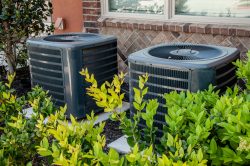How Long Do Residential AC Units Last?
 How Long Do Residential AC Units Last?
How Long Do Residential AC Units Last?
Air conditioning units are a valuable investment for homeowners, especially in hot and humid areas. However, like all electrical appliances, AC units have a lifespan and can fail over time. The longevity of an AC unit depends on several factors, including the make and model of the unit, regular maintenance, and frequency of use. In this blog post, we’ll explore how long residential AC units last, common causes of breakdowns, and signs that it’s time to replace an AC unit.
The average lifespan of an air conditioning unit is between 10-15 years. This lifespan is based on how well the unit is maintained and how frequently it is used. With proper care, some AC units can even extend that lifespan to 20 years.
Factors That Affect Air Conditioner Longevity
1. Regular Maintenance
Regular maintenance is paramount to extending the life of an air conditioning unit. Experts recommend scheduling annual maintenance visits, where trained technicians perform a routine inspection of the unit and carry out any necessary repairs or service the unit. During a maintenance check, technicians replace or clean the air filter, make sure all parts are operating correctly, and lubricate necessary parts. Neglecting regular maintenance can cause more wear and tear on the unit’s parts and negatively impact the AC unit’s lifespan.
2. Frequency of Use
The frequency of use of an air conditioning unit also affects its longevity. AC units that run for extended periods tend to wear out faster than AC units used only occasionally. For instance, units that are used year-round in hot and humid climate areas, such as Florida, may have a shorter lifespan than units used only during the summer months in areas with milder temperatures.
3. Environment
The environment where an AC unit is located is another factor that affects its lifespan. Outdoor units may be exposed to harsh weather conditions, such as hail, rain, and intense sunlight that may cause the unit to wear out faster. Similarly, units exposed to debris and dust from nearby construction projects may experience issues such as clogged air filters impacting the unit airflow, reducing the unit’s efficiency.
4. Unit Quality
The quality of an air conditioning unit also contributes to its longevity. High-quality units are more durable and built to last, potentially providing ten or so extra years of use. Cheaper, off-brand units may operate correctly initially, but they are likely to break down more often and not last as long.
Signs It’s Time to Replace Your AC Unit
1. Rising Energy Bills
A sudden surge in energy bills can indicate a malfunctioning or inefficiency in the AC unit. If the utility bill is abnormally high, it’s time to check the AC efficiency, inspect the ductwork for leakages, or even think of getting an energy-efficient HVAC system.
2. Unusual Sounds
A well-maintained air conditioning unit operates quietly in the background without any distracting noises. If the AC unit suddenly starts making unusual sounds such as grinding or buzzing, this could indicate some issue with the compressor or fan motor. Unusual sounds can ultimately cause the AC unit to break down completely, which will require an expensive repair or replacement.
3. Uneven Cooling Throughout the Home
If some rooms of the house are temperature-controlled while others remain too warm or cold, this could indicate an issue with the AC unit. A malfunctioning AC unit may go unnoticed for some time until it starts negatively impacting the home’s comfort levels. If a homeowner observes warmer than usual temperatures even in the presence of a thermostat setting, they should consider having the unit serviced.
4. Age
Age is a significant factor in assessing when to replace an air conditioning unit. As stated earlier, a well-maintained air conditioning unit can last up to fifteen years, with some quality units providing over twenty years of service. Homeowners with an air conditioning unit older than fifteen years should start considering an upgrade of the unit.
Final Thoughts
Air conditioning units are a valuable investment for homes, and with proper maintenance, they can last for many years. However, various factors can negatively impact the unit’s lifespan, such as poor maintenance, frequent use, and the environment it operates. It’s essential for homeowners to regularly service their AC units, monitor their units closely for signs of malfunctioning, and plan for replacement when the unit approaches the end of its lifespan. With the help of a professional HVAC contractor, homeowners can help ensure their AC unit will provide maximum comfortability throughout the years.
Categorised in: Air Conditioner
